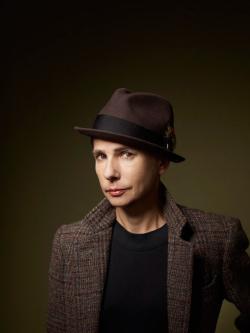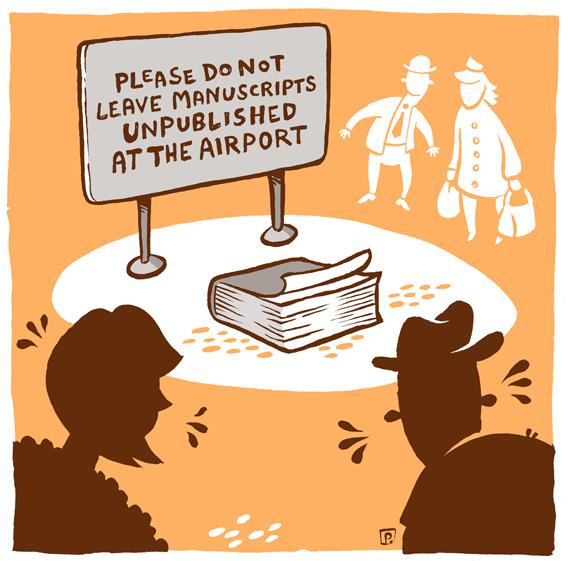Can you hate a book just because of its author’s note?
Lionel Shriver’s novel The New Republic is a political farce set in Barba, an imaginary peninsula located at the southern tip of Portugal. As the book opens, Edgar Kellogg, a Manhattan corporate lawyer nearing 40, hangs it all up to become a journalist.* He wrangles a job at a major newspaper and is sent to cover Barba and its ongoing quest for independence. That fight is led by a local terrorist group with the acronym SOB, the silliness of which suggests the deeply odd tone of The New Republic, a hybrid satire/thriller about terrorism, which was written (even more oddly) before 9/11.
by Lionel Shriver
Harper
Such a book certainly could use an author’s note, but maybe not this particular author’s note. Lionel Shriver explains that she completed the novel in 1998 but couldn’t find a publisher. She blames this failure on her “poisonous” sales record. “Perhaps more importantly,” she adds, “my American compatriots largely dismissed terrorism as Foreigners’ Boring Problem.” Over the next decade, her sales grew, and with 9/11 the profile of terrorism grew as well. Shriver goes on: “I was obliged to put the novel on ice, because a book that treated this issue with a light touch would have been perceived as in poor taste.”
There’s so much that’s wrong with this paragraph. First and foremost, there’s Shriver’s condescending tone about provincial Americans of 1998 and their supposedly dismissive attitude toward terrorism. (In 1998, al-Qaida bombed the U.S. embassies in Tanzania and Kenya.) Shriver, American by birth, has lived for over 20 years in the United Kingdom, and there’s a whiff of snobbery in the implication that she used to be one of those people, but fortunately has moved on to the higher cultural elevations of Europe, leaving all us dumbasses behind.
So first the book went unpublished because terrorism was unimportant to Americans. Then it languished because terrorism was too important to Americans. There’s a trend emerging here, no? One that Shriver seems to refuse to see. Here, I’ll spell it out: Publishers did not want to publish the book. (This despite publishing 10 other Shriver novels, including the best-selling We Need to Talk About Kevin.) Shriver’s determination to blame her nonpublication on her audience reminds me of an ad I used to see on TV in which the wife asks the husband if her pants make her butt look big and he replies, “It’s not the pants!” It’s not the audience. It is, dare I say, the book.
Maybe Shriver includes all these caveats because she senses she didn’t quite pull the thing off. She set out to write a fizzy book about terrorism. While that goal does have delightfully perverse potential, some readers will understandably have arguments with such a project. Shriver fails to figure out a way to stave off these arguments. She doesn’t use satire to make a discernible larger point about terrorism, except maybe that it’s pointless. Not only that, but she fails to achieve the goal itself. The book is the opposite of fizzy. It is flat. The plot beggars belief, and the whole unfunny thing is overlong by at least 100 pages.
I weary just thinking about Edgar, her protagonist—though even that relatively neutral word is too heroic-sounding to describe this basically wet main character. When he arrives in Barba, he takes the place of Barrington Saddler, a wildly charismatic journo who’s disappeared mysteriously. Barrington is the kind of person around whom events and people naturally cluster. Says one of the other journalists: “He goes to Haiti, Duvalier’s overthrown. To Africa, bingo, Ethiopia obliges him a famine. He goes to Moscow, there’s a military coup. He goes on vacation in Israel and bang, Rabin’s assassinated. … That bastard had such a string of world-class events behind him that you had to start wondering if he made them happen.”
Edgar finds his feet a bit small to fill Barrington’s shoes, but somehow can’t escape the guy. He lives in Barrington’s former digs, works at Barrington’s job, and falls in love with Barrington’s girl. He feels like a second stringer, and chafes at the role, but soon is forced to become a more major player when Barrington begins to pay him secret (and possibly imaginary) visits. Edgar finds himself enmeshed in a complicated game with the SOB, and the book veers from the merely tedious to the entirely implausible.
Shriver‘s previous books have linked psychological acuity to plot. What her people do usually seems to flow out of who they are. But in this book, the psychological profiles of her characters are both labored and one-dimensional, a neat trick. While the strategy of placing an unappealing secondary character at the center of the story is certainly a proven approach, Shriver fails to make Edgar interesting, or even interestingly annoying. We learn that his congenital second-bestness goes back to his childhood as a fat kid; and then the author hammers the point in totally unnecessary scenes of backstory. Other characters don’t fare much better. Barrington Saddler never emerges as much more than a womanizing charmer, though we do learn that this role can have a dark side. And the love interest, Nicola, is little more than a pretty assemblage of quirks.

Suki Dhanda
Of course none of this would matter if the book were funny; Wodehouse never, after all, bothers to make us care about Jeeves’ childhood. But it’s not. It feels instead like a long hike up a switchback trail in a deep forest: lots of work, lots of backing and forthing, no vista. The stuff about Barba, for instance, should be pointedly comic—why invent a region in your satirical novel if you can’t be bothered to make up a discernible culture for it, or at the very least a bunch of funny names? Your invented world should at least aspire to the Grand Fenwick of The Mouse That Roared, even if it doesn’t quite stretch toward the Zembla in Nabokov’s Pale Fire. But Barba never really impresses itself upon our imagination. The buildings, Shriver tells us, are of a “savings-and-loan architecture.” Fair enough, the architecture is dull. But could we take it bit further? And we never really get to know the natives, who are described as “easygoing.”
The few nongeneric details are lamely imagined. For instance, the hairy pear, a local noxious weed, comes up again and again: “The testicular blob had the pulpy give of a fig, though the scraggly inch-long threads on its skin were coarse. It was something like a kiwi on testosterone, or Cousin Itt from The Addams Family reincarnated as a fruit.” This is both overwritten and unfunny, the signal tone of the book.
Of course we ought not to hate books because of their author’s notes. We ought to give books the benefit of an actual reading. But the writing in The New Republic bears out the initial augury of that up-front bit of business. There’s a laziness at work in both cases, a kind of shrugging refusal to make something better. Shriver suggests her book is too wild for America. It’s not, but America might be too smart for Shriver’s book.
See all the pieces in the new Slate Book Review.
Correction April 9, 2012: This article originially misidentified the novel’s protagonist. His name is Edgar Kellogg, not Edwin Kellogg. (Return to the corrected sentence.)
